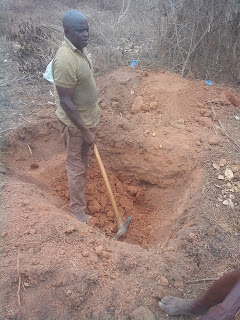FG Signs MoU on Dairy Production and Development
The Federal Government has signed a Memorandum of Understanding (MoU) for the development of the dairy sector in Nigeria.
Signing the MoU with one of the world’s largest dairy companies – Arla Foods in Abuja, the Minister of Agriculture and Rural Development – Chief Audu Ogbeh stated that the Nigerian Government in line with its plan on food security, welcomes companies and initiatives that would help in the development of the agricultural sector.
According to the Minister, “the population of the country is growing so fast with an increasing population of children malnourished. With the Federal Government’s school feeding programme, we dream of a day, where every Nigerian child has a pack of milk per day to improve their health. We are creating an enabling environment in the cattle breeding programme, where a poor widow in the village can own four or five cows to milk and have the facility to preserve them for local consumption. If a family has three or four cows, this can keep poverty away from them because rural poverty is a serious matter”.
Chief Ogbeh assured that Nigeria has a huge market with endless opportunities, adding: “We look forward to seeing a transmission of your knowledge to our farmers. Let this be a synergy and not just a business. The cows are not properly taken care of so the quality and quantity of milk, beef they produce is low and we want this to change”.
Speaking earlier, the Senior Vice President and Head of Arla Foods for Sub-Saharan African – Mr Steen Hadsbjerg explained that Nigeria was chosen due to its vast potentials.
“We are here to build a sustainable dairy industry in Nigeria Arla is more than 130 years old and we have been in Nigeria for more than 30 years operating under the name of Dano, one of our global brand. By signing this MoU, we are committed to the proper development of the dairy sector and the technical know-how to farmers in Nigeria.
“We will assist to develop the supply chain; we will work to ensure quality delivery of milk produced here to meet international standards. We will work with international NGOs and use our connections in the EU to support the Nigerian government in this project. We will talk and work with the farmers directly based on local milk and we are aiming to train about 200 farmers in the first year” he added.



Comments
Post a Comment